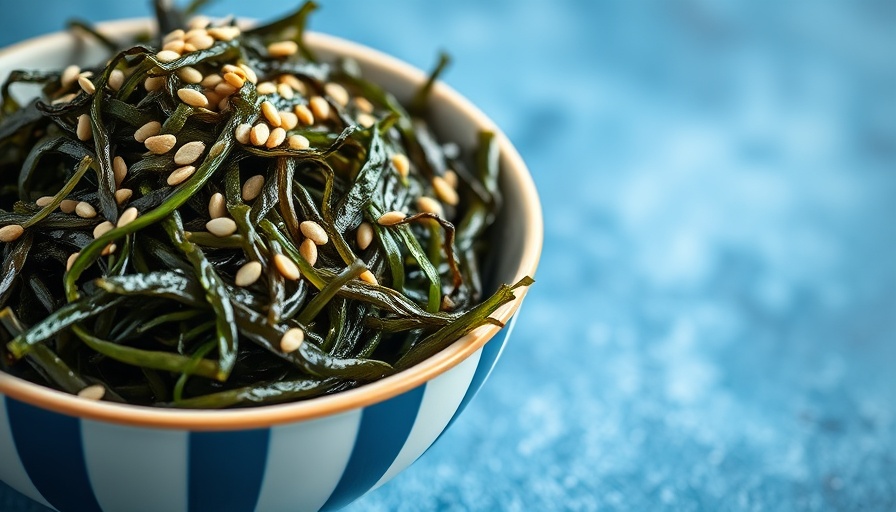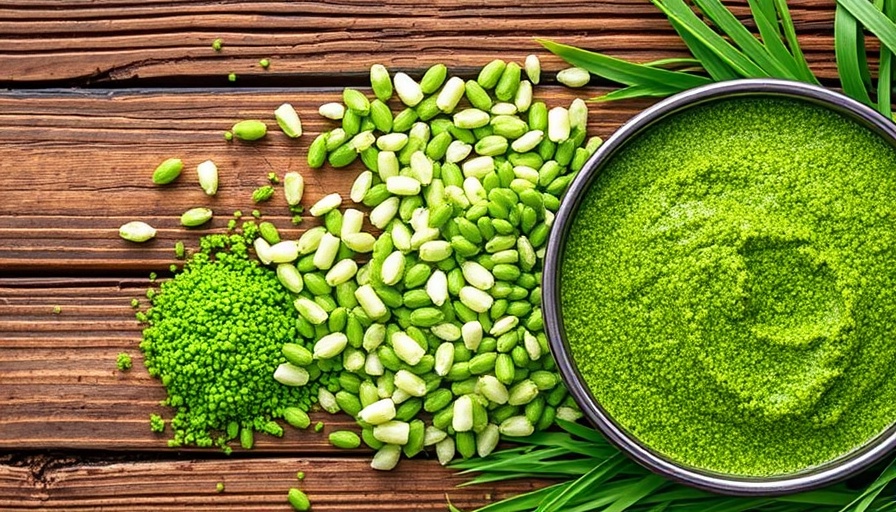
Understanding Iodine: Why It Matters for Your Health
Iodine is a vital nutrient that plays a crucial role in thyroid function, metabolism, and overall health. However, many people may not know how to ensure they're getting enough of this essential mineral. In the United States, dairy milk is a well-known source, providing between 25% to 50% of the recommended daily iodine intake. Interestingly, this iodine doesn’t come naturally; it's often introduced through iodine-containing disinfectants used on dairy cows, which leach into the milk. This highlights a critical consideration for consumers concerned about iodine levels in their diets.
The Shift to Plant-Based Diets and Iodine Conservation
With the rise in popularity of plant-based diets, many are opting for alternatives like soy milk and almond milk, which often lack adequate iodine. While fortified soy milk can be a healthy option, it raises questions about the overall impact of soy on thyroid health. Some studies suggest that soy might inhibit the absorption of thyroid medication, but thyroid functions generally remain stable in individuals with normal thyroid levels. The caution lies in ensuring that if you're consuming soy frequently, you’re also getting enough iodine to match your dietary needs.
Getting Iodine from Sea Vegetables: Nature’s Solution
For those looking to enhance their iodine intake through natural sources, sea vegetables like nori, dulse, and kelp are standout options. Seaweed can provide up to 2000% of your daily iodine requirement in just a gram—about the weight of a paperclip. Including seaweed in your diet intermittently can satisfy your iodine needs effectively, enhancing both taste and nutritional value. However, it’s essential to approach this source wisely; certain types of seaweed can contain excessive iodine, which could lead to health concerns like hyperthyroidism. Moderation is key here!
The Dangers of Inadequate Iodine Consumption
Despite the options available, there’s still a concerning trend: the average iodine level among vegans tends to be lower than recommended levels. The significance of maintaining healthy iodine levels cannot be stressed enough; inadequate iodine intake can lead to thyroid dysfunction, fatigue, weight gain, and other health issues. For individuals actively avoiding dairy or those on a vegan diet, it’s crucial to strategize iodine intake through balanced nutrition.
Making Informed Dietary Decisions
As you navigate your dietary choices, particularly in a world where health-conscious decisions often clash with convenience, there are a few practical insights to remember. First, check if your table salt is iodized, as only about 53% of salt sold for household use contains iodine. Additionally, focus on incorporating sea vegetables into your meals, perhaps exploring the culinary delights that come with them. They not only promote iodine sufficiency but also add unique flavors to your dishes.
A Call to Proactive Health Choices
In light of these discussions surrounding iodine, the question arises: How can you take charge of your iodine intake? By being aware of what you eat and the nutrients you may be lacking, you can make informed dietary decisions. For those concerned about their iodine levels, consulting with a healthcare provider or nutrition specialist can provide personalized insights tailored to your health needs.
Don't hesitate to explore healthy, delicious options and make those small dietary adjustments that lead to significant health benefits. Awareness is the first step towards a healthier you!
 Add Row
Add Row  Add
Add 




Write A Comment